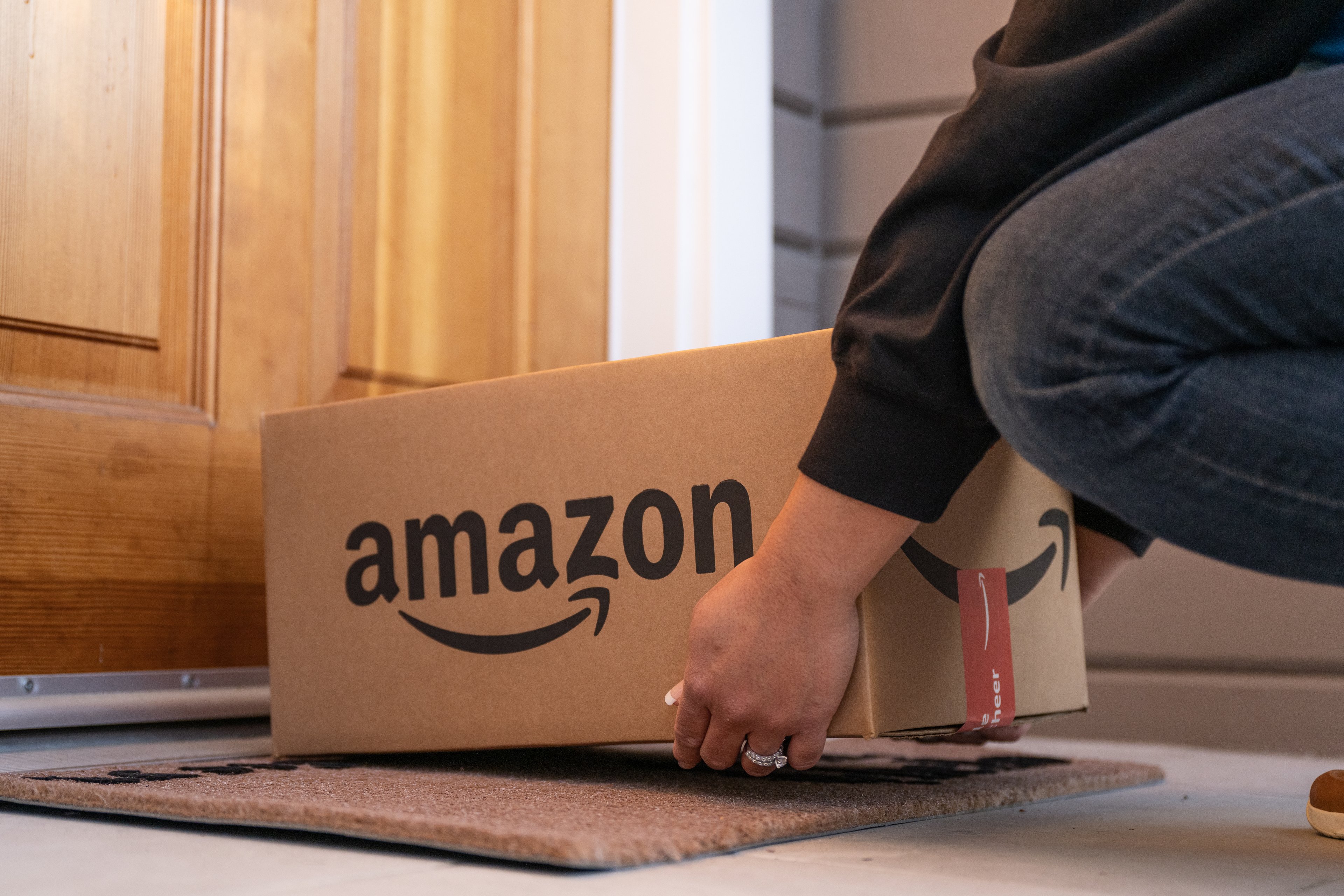Our digital lives are dominated by a handful of companies. Among the most dominant are Alphabet (GOOG +1.88%) (GOOGL +1.72%), Facebook (FB 1.41%), and Amazon.com (AMZN +1.53%).
All three stocks have posted excellent returns in 2017, and all three are well positioned to continue outpacing the broader market. But if investors had to choose just one of these three stellar companies, which should they choose?

Image source: Google.
The dominant force in advertising
Google controls a massive share of the global internet search market. Google consistently takes over 90% of global search traffic. Those searches not only provide high-value advertising space, but also provide great ad-targeting data for use across Google's portfolio of apps including YouTube, GMail, and Maps -- all of which have over 1 billion users.
YouTube, in particular, presents a massive opportunity for Google. The video service boasts over 1.5 billion logged-in users streaming an average of over one hour of video on mobile devices alone. As advertisers look to shift spending from traditional TV to digital media, YouTube presents the best analog to television advertising.
The continued growth of YouTube and internet-connected devices in general resulted in Google posting a 21% year-over-year increase in ad revenue last quarter. Average ad prices continue to fall year over year as users spend more time on mobile and more new users come from emerging markets with lower average ad prices. That said, Google showed some signs of stabilization as average ad prices increased sequentially.
With so much ad inventory and such great targeting data, Google has become a dominant force in advertising. As digital ad spending overtakes television advertising, Google is a prime beneficiary. The company also continues to take moonshots, mostly under the Alphabet umbrella. Those offer tremendous upside, but their size relative to Google results in minimal negative impact on the operations of the company in the near term.

Image source: Facebook.
The second piece of the digital advertising duopoly
Facebook is the second-largest digital advertising platform after Google. Its 2 billion member flagship social network is flanked by 2 billion-user messaging services and a relatively small photo-sharing network you might've heard of -- Instagram -- which only has 800 million users of its own.
But buyer beware. Facebook is facing an expected slowdown starting in the second half of this year as it bumps up against ad load saturation on its flagship product. Last quarter, Facebook managed just 49% advertising revenue growth. It would be great if all revenue growth slowdowns looked like Facebook's.
Facebook is managing to increase average ad prices even as the growth in ad impressions stagnates. It's pushing more into video advertising, and recently launched Watch to compete more directly with YouTube. It's also quickly growing advertising on Instagram as it works to develop a long-term monetization strategy for Messenger and WhatsApp.
Facebook has a few moonshots of its own, including a big investment in virtual reality with its Oculus operations. The company is at the forefront of VR technology, so if it really is the next big computing platform as CEO Mark Zuckerberg predicts, Facebook will play an even bigger role in our lives next decade.

Image source: Amazon.
The retail giant that's a "Prime" candidate for your investment dollars
Amazon is much more than a retail company these days. In fact, most of its profits stem from its cloud computing services division, Amazon Web Services. One could argue Amazon is more of a services business than a retailer. From cloud computing, to its marketplace, to streaming video and music, Amazon has a plethora of services available to customers.
Amazon Prime is the glue that holds nearly all of its services together. Prime is the reason why more than half of all product searches on the internet start on Amazon.com. It's the reason shoppers will opt to buy something from Amazon rather than a competitor, all else being equal (or just close to equal). It's the reason more and more third-party merchants want space in Amazon's warehouses for its Fulfillment by Amazon program. It's the reason Amazon can produce original content, show its movies in theaters, and offer a subscription streaming service in parts of the world where Prime isn't available.
There are 90 million U.S. households with a Prime subscription, according to Consumer Intelligence Research Partners.
Prime's success has led to continual growth for Amazon. Last quarter, sales increased 34%. While Amazon continues to plow cash back into the business, its top-line growth results appear to be paying off.
Which is a better buy?
Comparing Alphabet and Facebook is relatively easy, as both companies have similar operations. But Amazon presents a big challenge, as it doesn't really have any peers that can compare.
Let's do the easy comparison first.
On an EV/EBITDA basis, Alphabet offers a significant discount to Facebook. Shares of Alphabet trade hands at a 19.7 times multiple versus a 23.9 times multiple for Facebook. With similar profit growth outlooks longnterm (considering they each benefit from the exact same secular trends), Alphabet shares appear to be the better buy at this time compared to Facebook.
But Amazon may present an even better opportunity. Its valuation is certainly off the charts with an EV/EBITDA ratio more than twice as high as Alphabet's, but it presents significant growth opportunities as it expands Prime into more countries, moves its retail operations into more verticals, and looks for new services to support its own business as well as new customers.
Investing in Amazon certainly requires faith in management to execute on an extremely long-term playbook. Investors who just want to maximize their returns on a megatrend in advertising would do well with Alphabet shares. As I said, all three companies present great opportunities.









